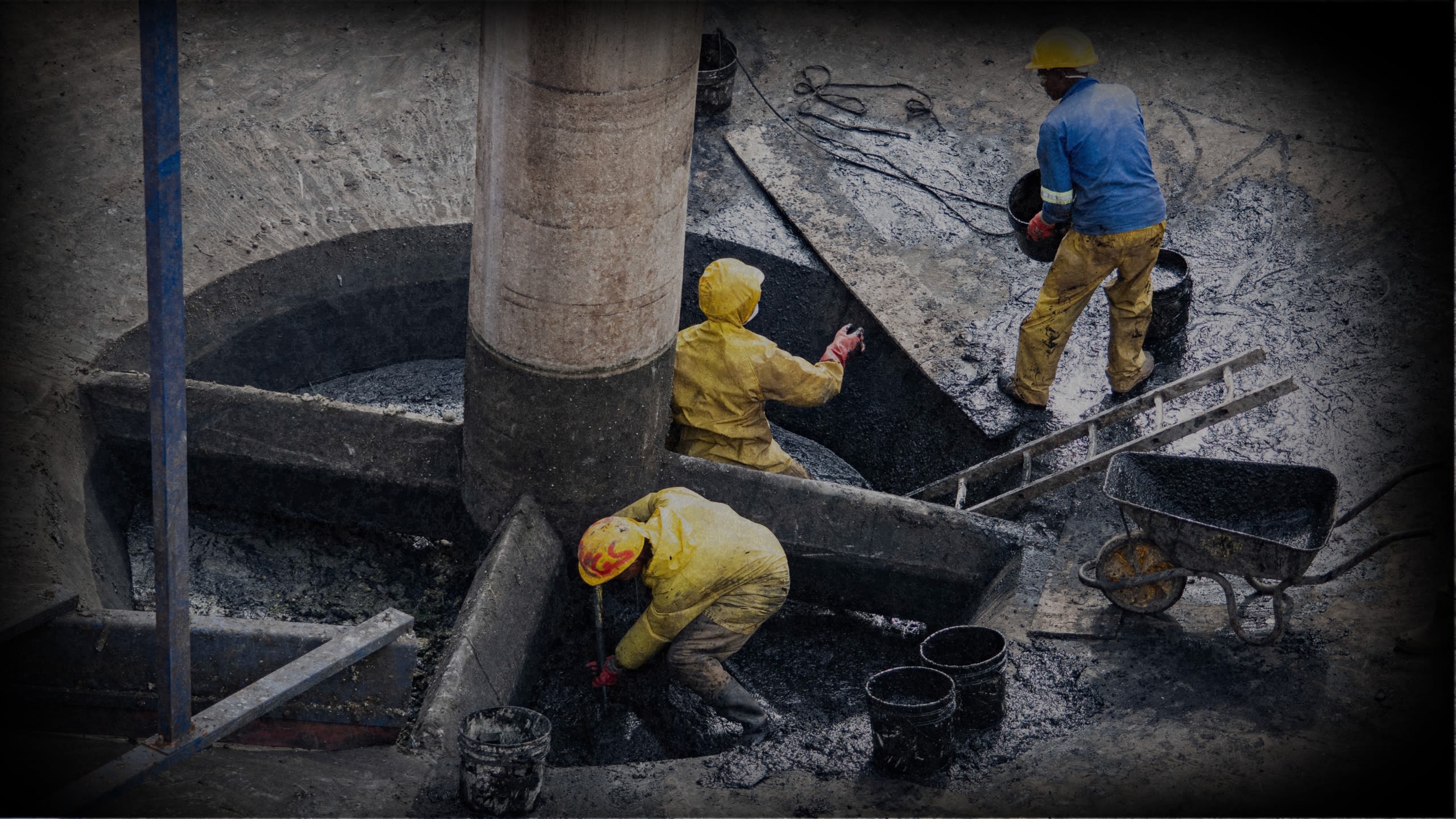
WASTE
LAND
Eight months on, Kagiso residents still live in sewage despite mayor's promises
By News24 Investigations
Words: Sikonathi Mantshantsha
Archive images: Alfonso Nqunjana
Images: Rosetta Msimango & Thahasello Mphatsoe
Production & design: Sharlene Rood
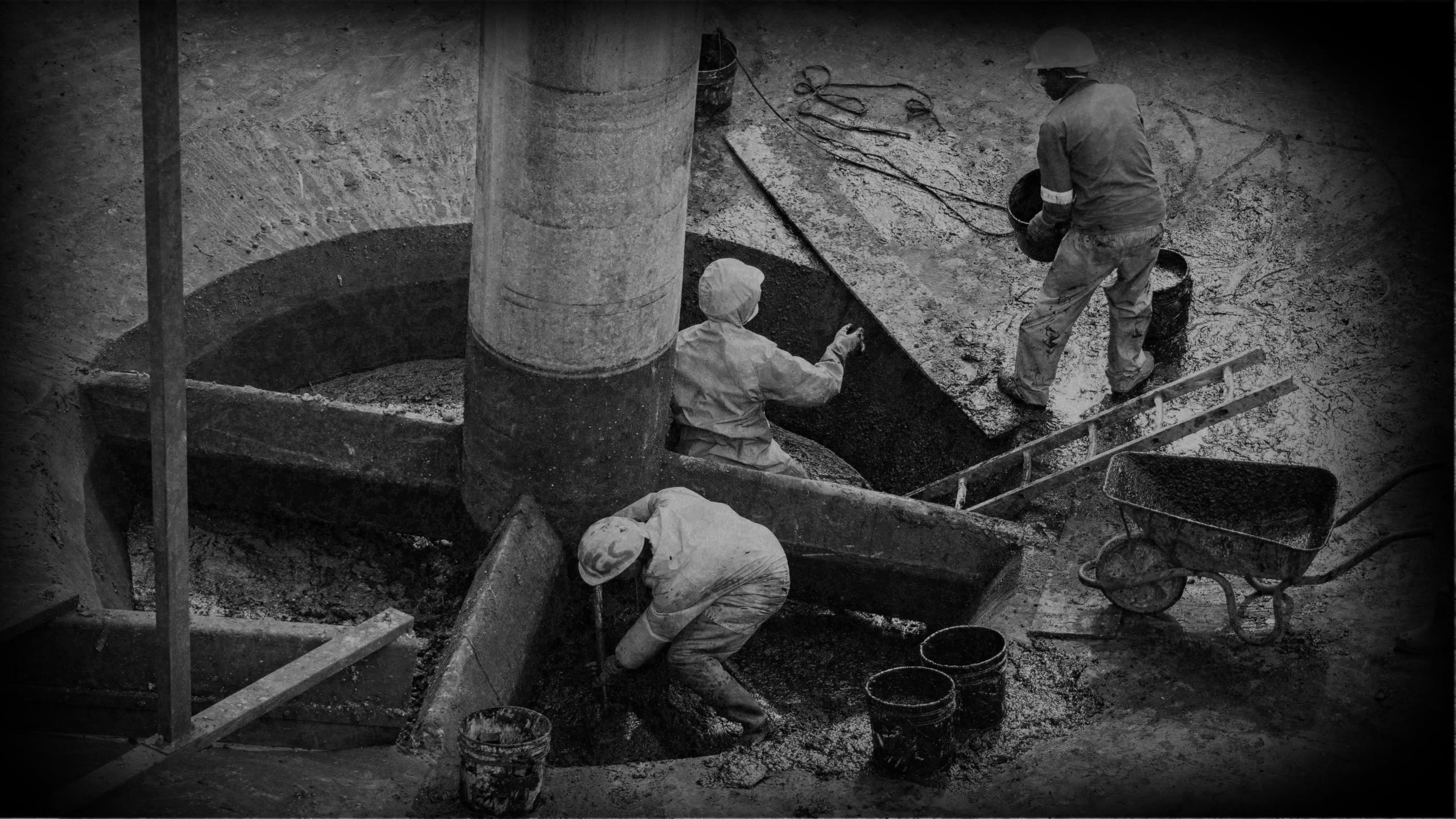

Eight months after Mogale City mayor Lucky Sele promised to stop sewage spilling into the homes, people in Kagiso still mop up lumps of faeces daily.
The Percy Stewart Wastewater Treatment Plant has started releasing much cleaner water into the river.
Tourists are returning to the attractions around the Cradle of Humankind.
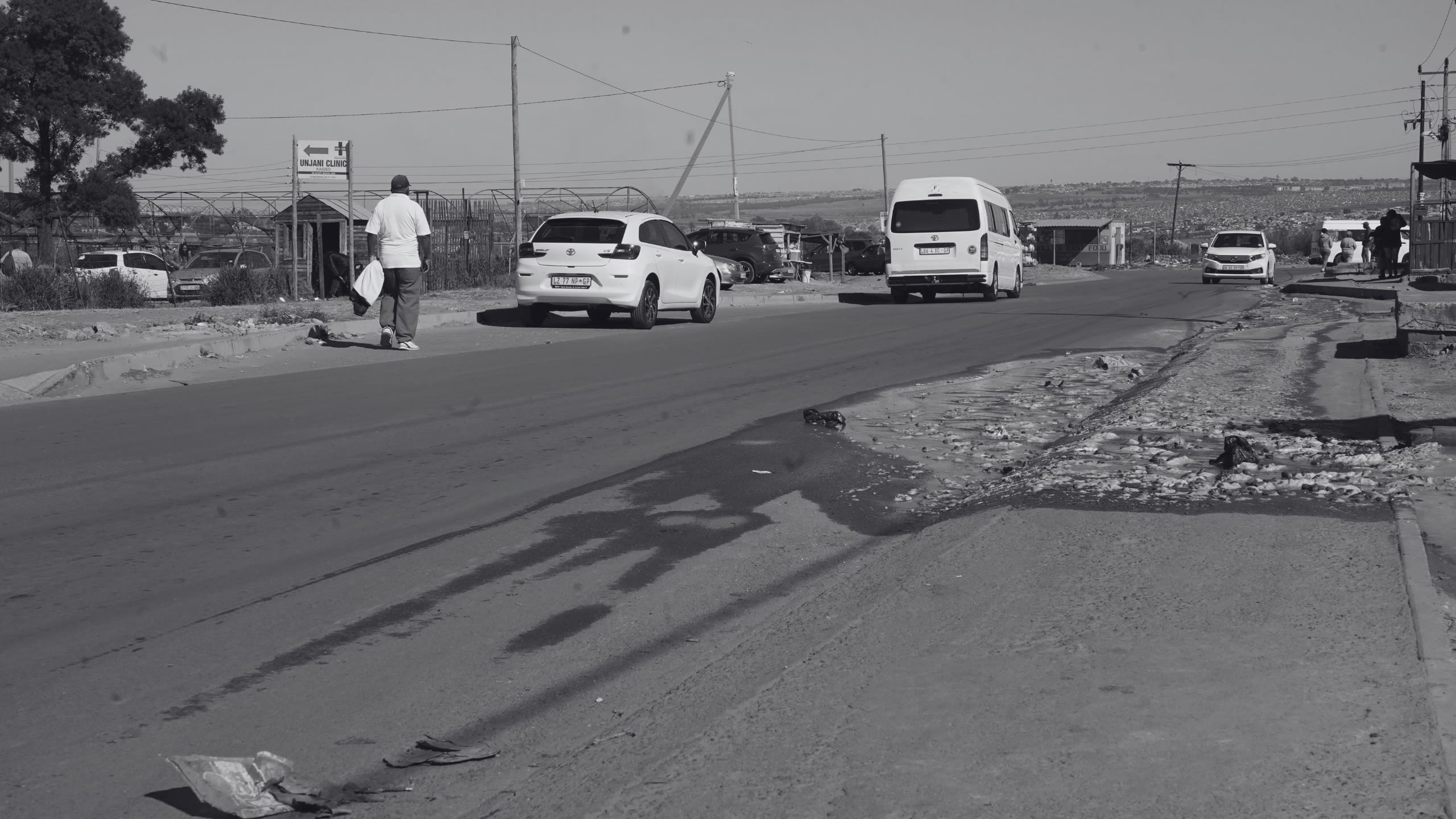
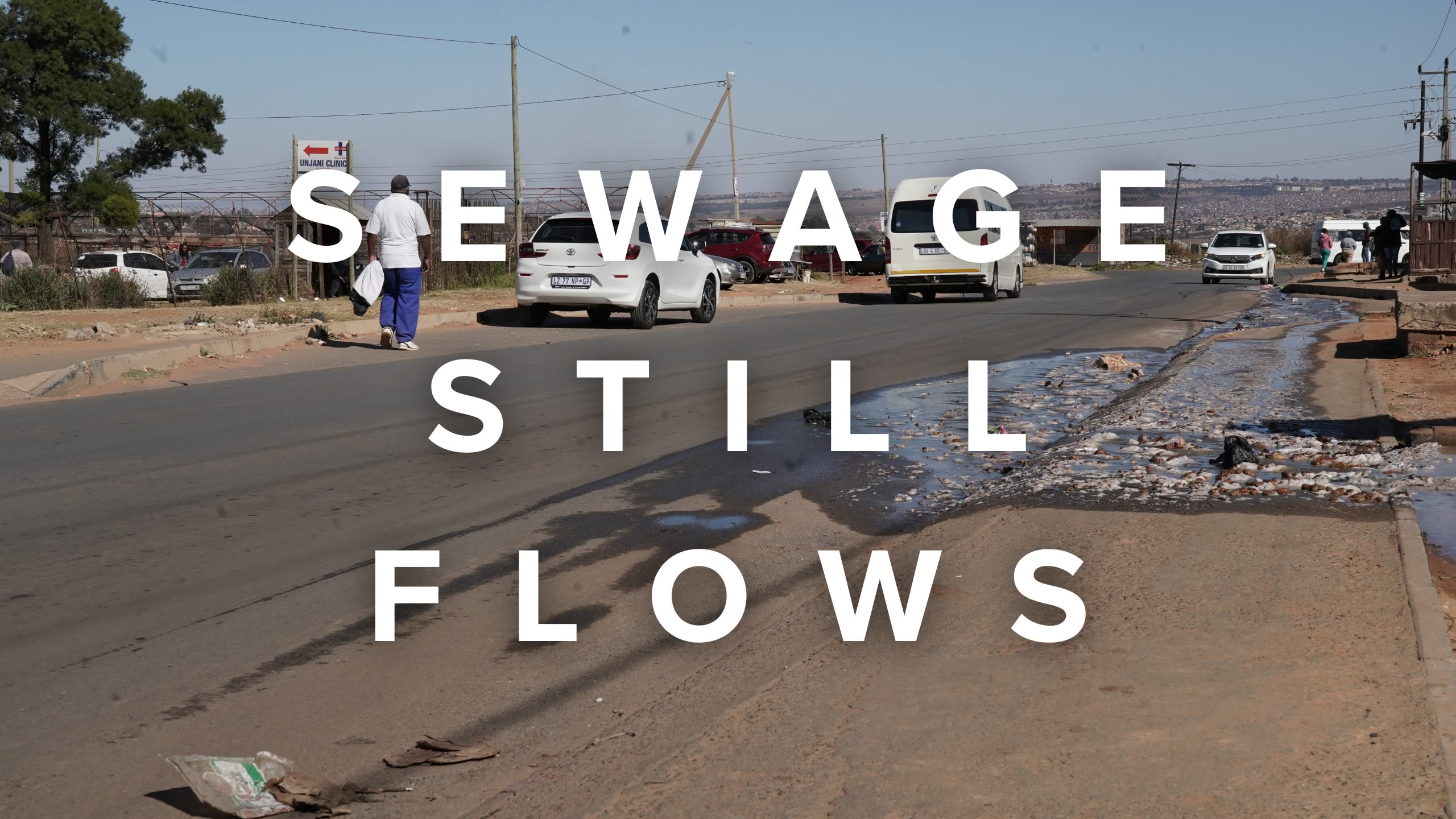
Streams of raw sewage and effluent course past the gates of a clinic and a creche in Kagiso township, Krugersdorp, with the choking stench providing a daily reminder of the shame and indignity of those who live there.
This is the status quo eight months after Mogale City Mayor Lucky Sele promised residents of the township that his administration would stop the sewage spills which soaked their homes in faeces, daily, for the last 28 years.
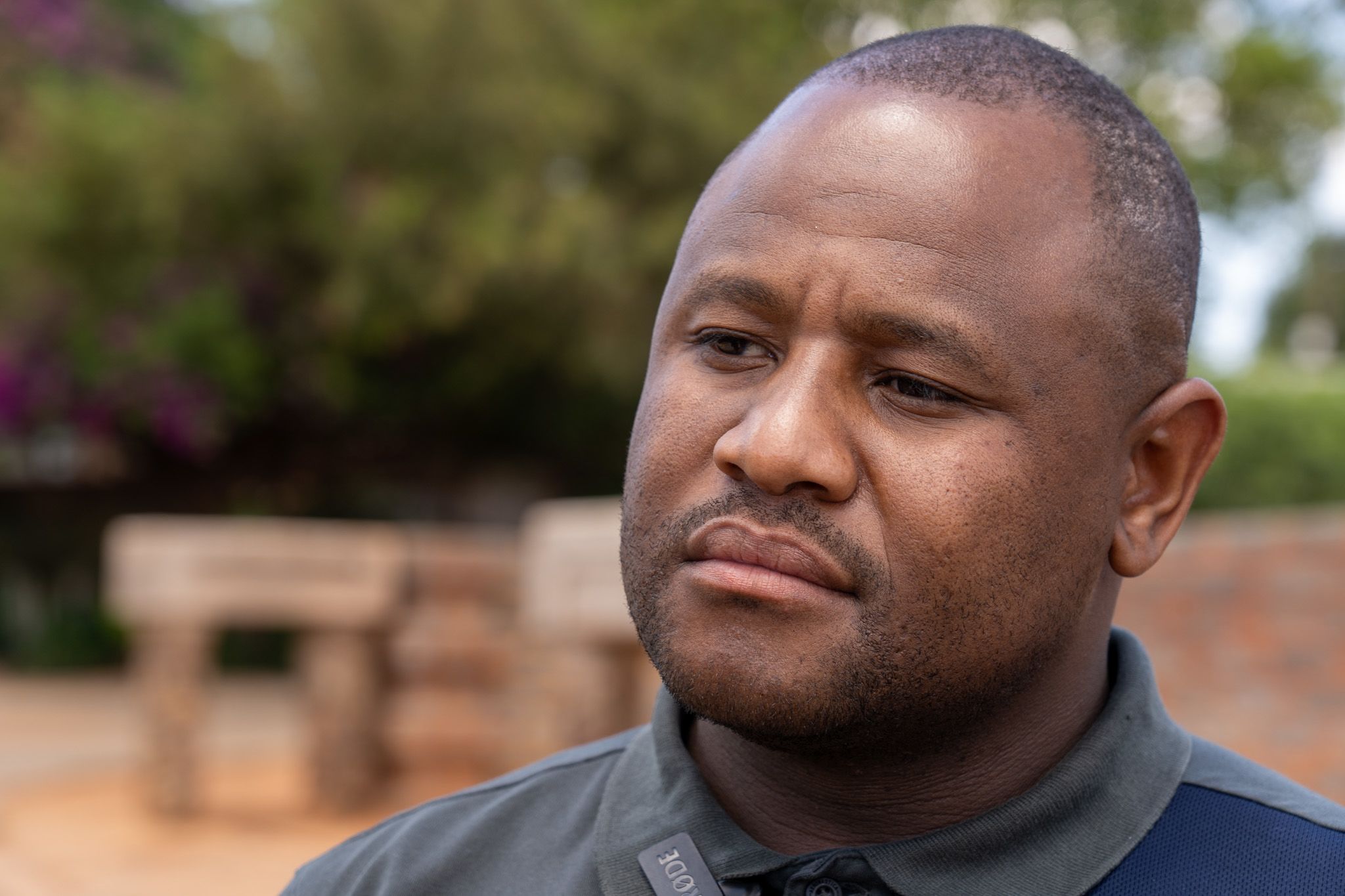
Mayor Lucky Sele (Alfonso Nqunjana / News24)
Mayor Lucky Sele (Alfonso Nqunjana / News24)
The sewage still flows.
People walking through the gates of Unjani Clinic and the Ikusasa Elihle Edu Day Care on Geba Street must tiptoe and jump over lumps of excrement leaking from a house up the road.
The nursery's name means "a beautiful future".
Interventions by the municipality have brought respite to some, but as a result of ailing, unmaintained infrastructure, the sewage has been displaced.
The settlement's older residents are bracing for the return of the pollution into their homes.
Joyce Hlatshwayo, 75, said even though their homes have seen some reprieve, they remain worried that the mayor's promises to correct the defect in the municipal sewage pipeline have not been fulfilled.
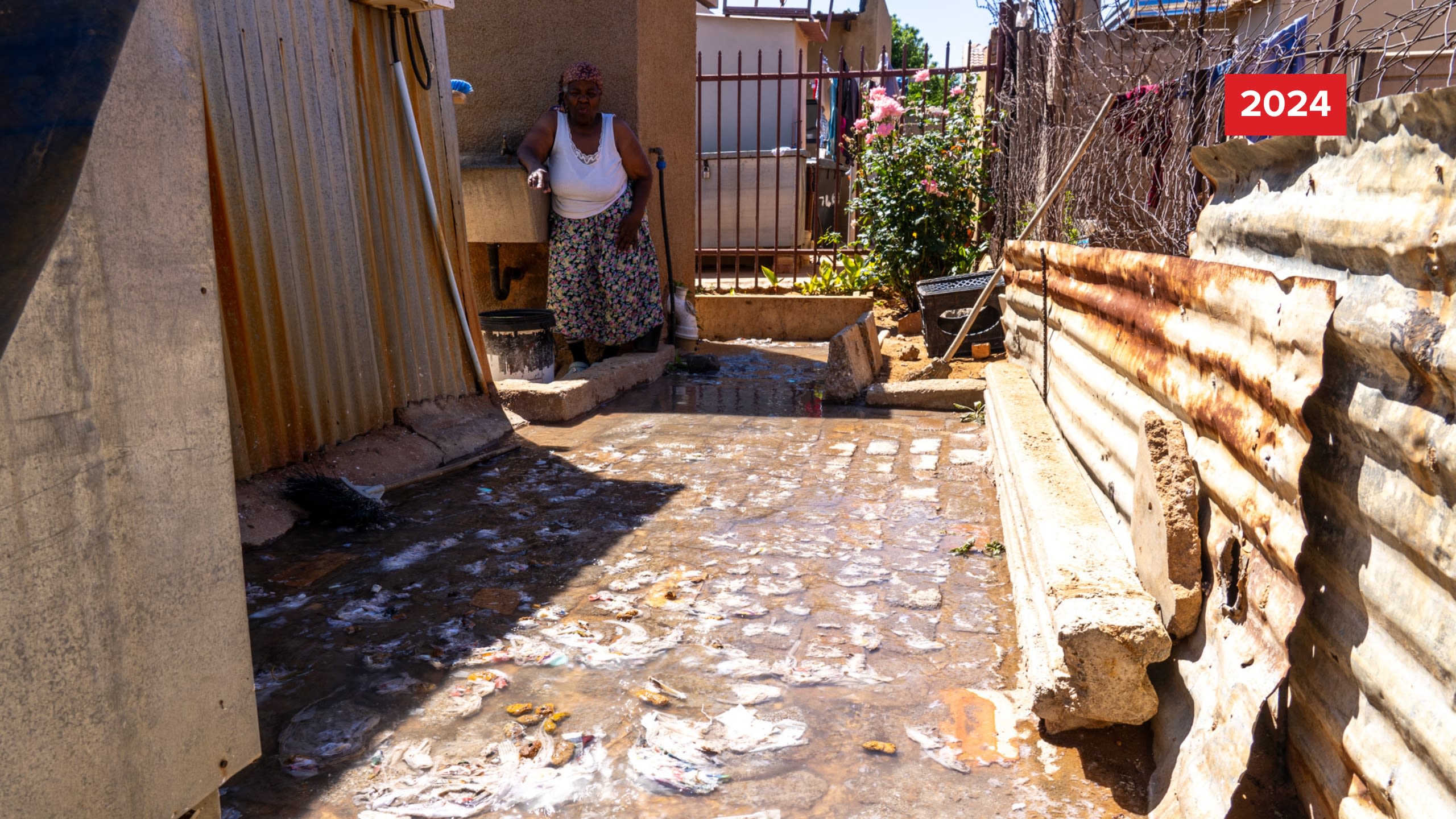
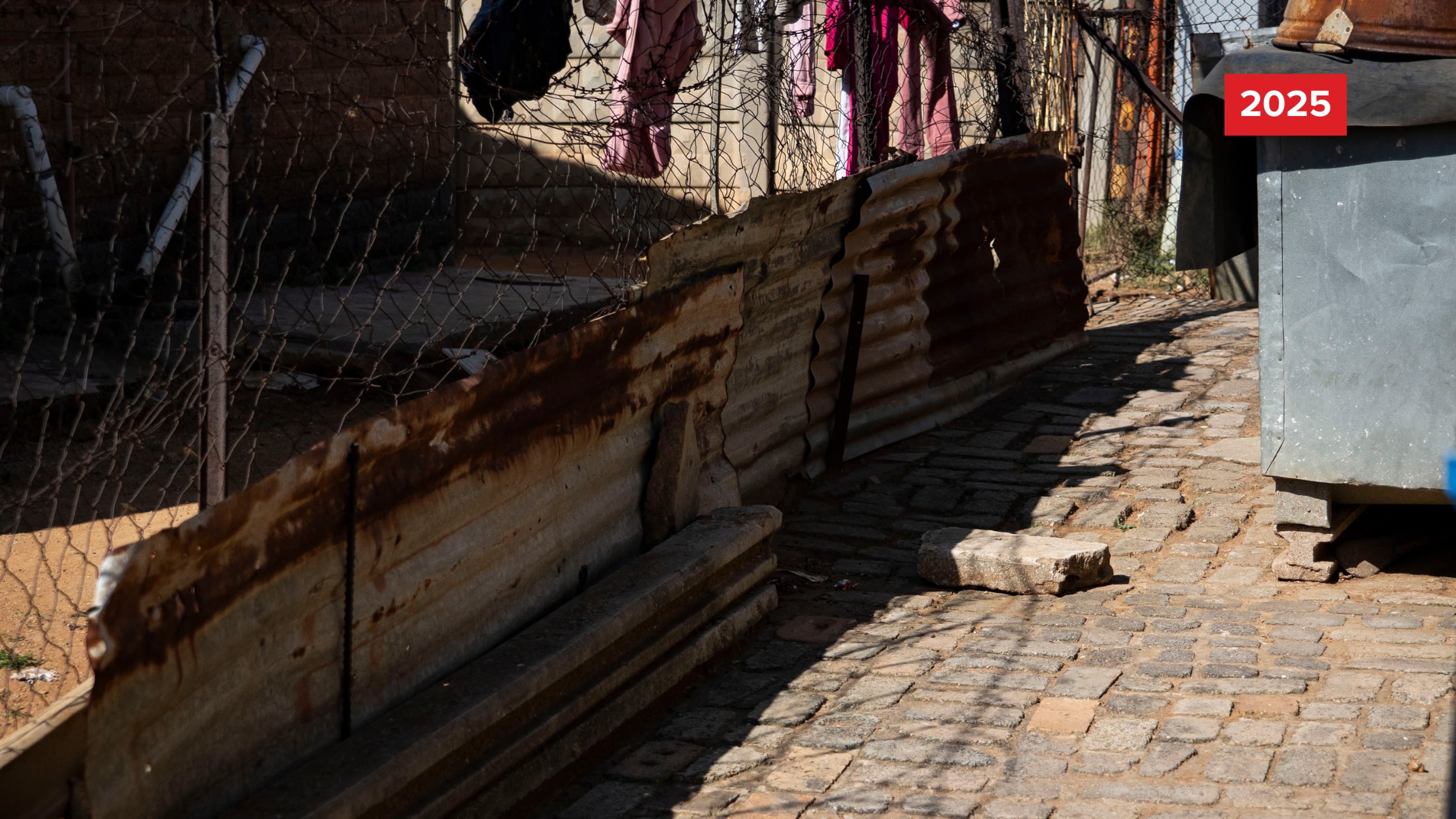
In October 2024, Sele promised Hlatshwayo the municipality would employ the services of a hydraulic truck to clean the pipelines running underneath the yards as a temporary relief measure. The municipality would investigate a solution.
The municipality now says it is trying to obtain a budget to remove the pipeline from inside the yards and put a much larger pipe on the street in front.
The current pipeline was designed for only one toilet per yard when the municipality installed the infrastructure 30 years ago, said Philani Ndlovu, the municipality's water and sanitation manager.
As you drive down the hill into the Percy Stewart Wastewater Treatment Works the air is clean and light. The choking stench in the air that confronted the News24 team on its first visit in July 2024 is gone.
Work on the wastewater treatment plant began nine months ago following a News24 exposé of the pollution of water sources caused by the municipality releasing untreated sewage into the Blougatspruit last year.

Since then, the municipality has erected a fence to secure the plant to limit incidents of vandalism and cable theft. Electrical cabling has been replaced. Pumps are working again.
Four of the six primary settlement tanks are now processing sewage, separating solids from the water before releasing it into the Blougatspruit watercourse.
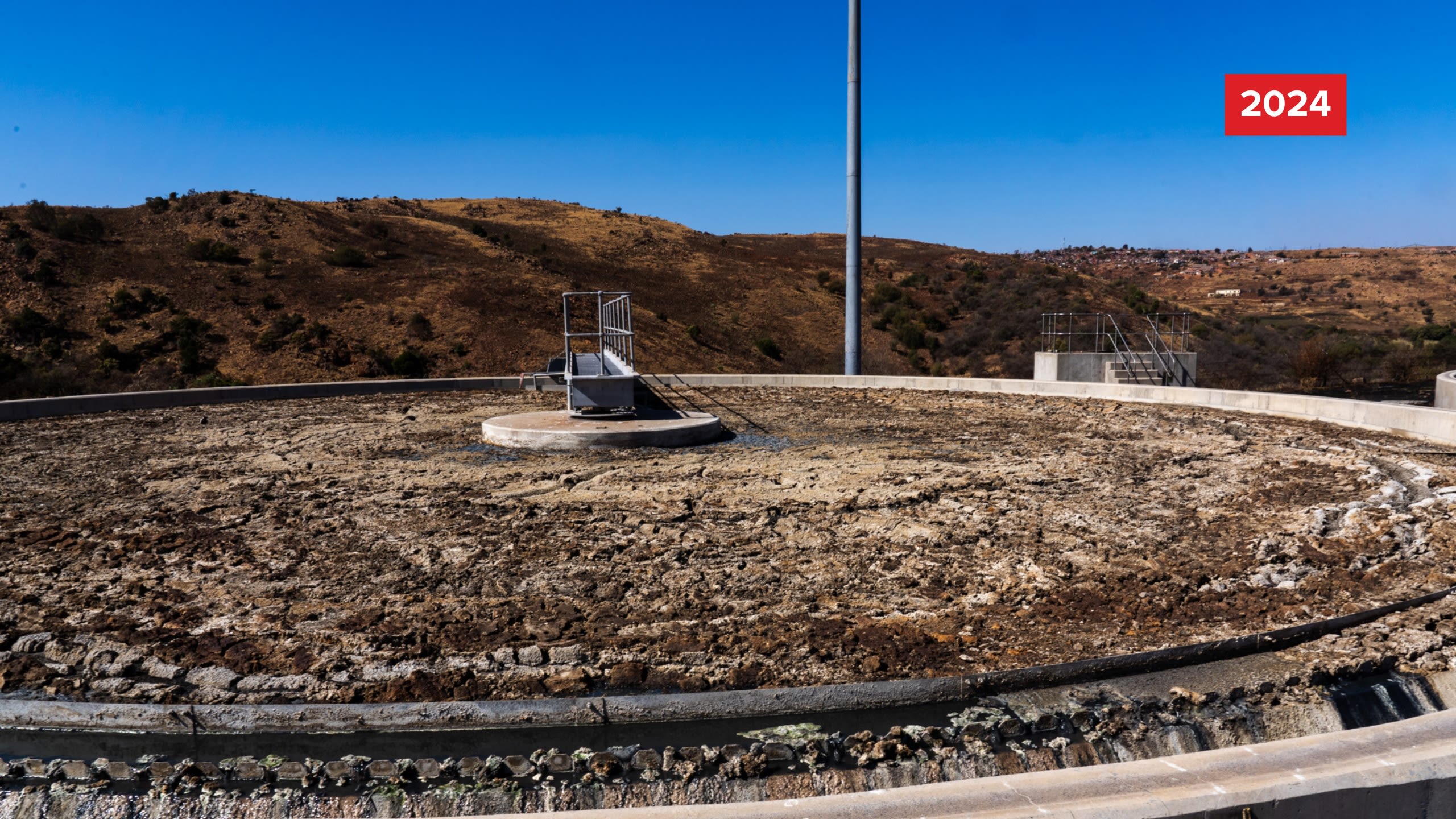
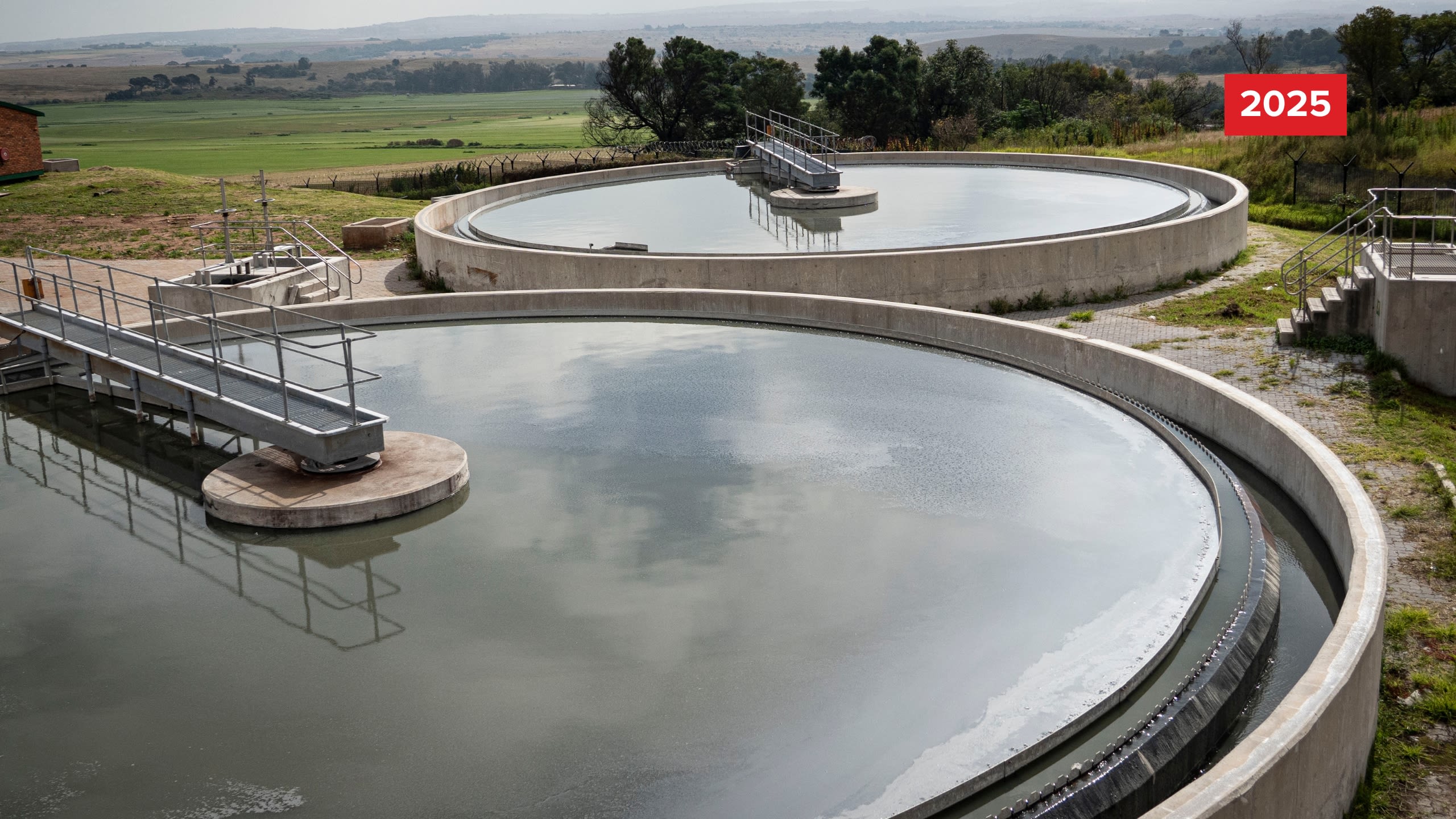
The remaining two PSTs will be operational within this month, said Philani Ndlovu, the municipality's water and sanitation manager.
"In three weeks these two PSTs will be increasing the capacity of the plant from the current 60%," said Ndlovu.
The 37 megalitre plant fell into disrepair since the municipality stopped maintenance and repairs over the past five years.
Instead of treating the wastewater in terms of its water licence requirements, the municipality illegally released the stinking sewage - with lumps of faeces - into the river and the neighbouring farms, polluting the valley.
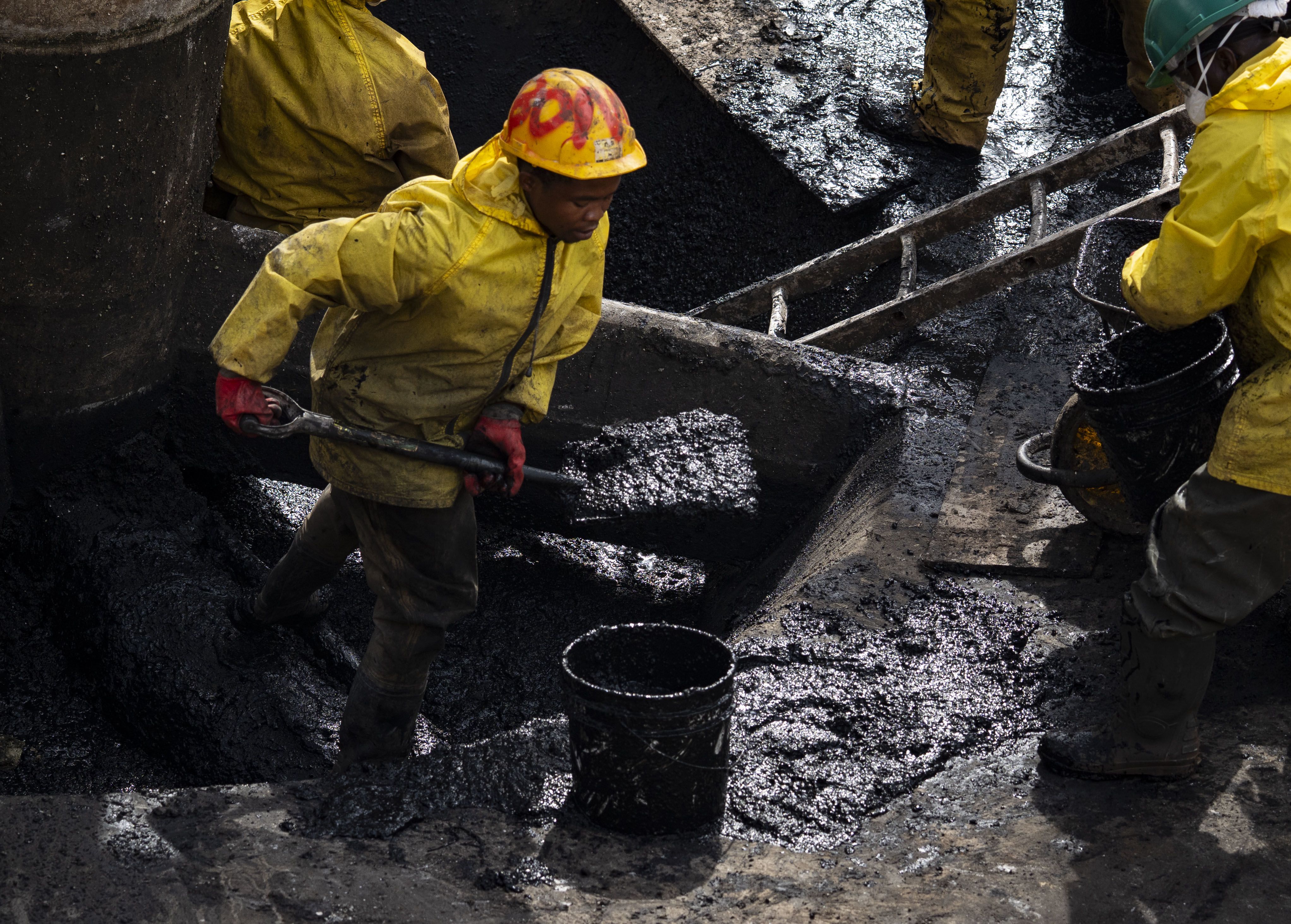
The resultant pollution poisoned the water flowing downstream for at least 50km through farms, businesses and homes that rely on the Blougatspruit, the Bloubankspruit, Crocodile rivers and the Hartebeespoort Dam.
The water killed all amphibian life immediately downstream.
It also destroyed jobs and livelihoods reliant on fresh water in the ecologically sensitive Cradle of Humankind area – a UNESCO World Heritage Site.
The municipality has so far spent about R100 million to restore the plant.
Whereas a year ago the ground around the plant was turned into a stinking swamp covered in effluent lumps in a heavy flow towards the river, the ground is now dry.
The water released into the river has changed from the oily black, foul-smelling sludge to greyish, lighter water free of poop.
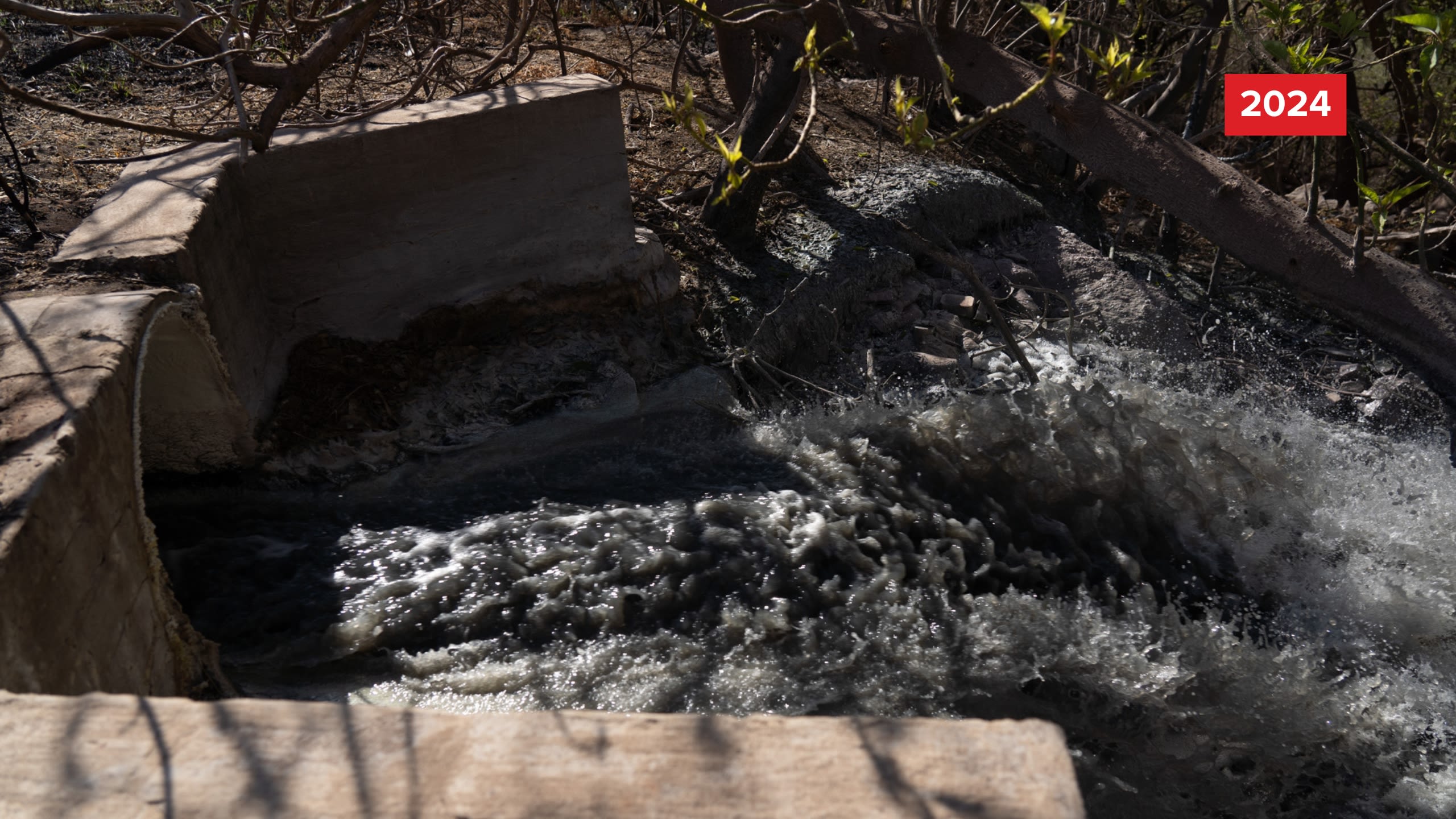
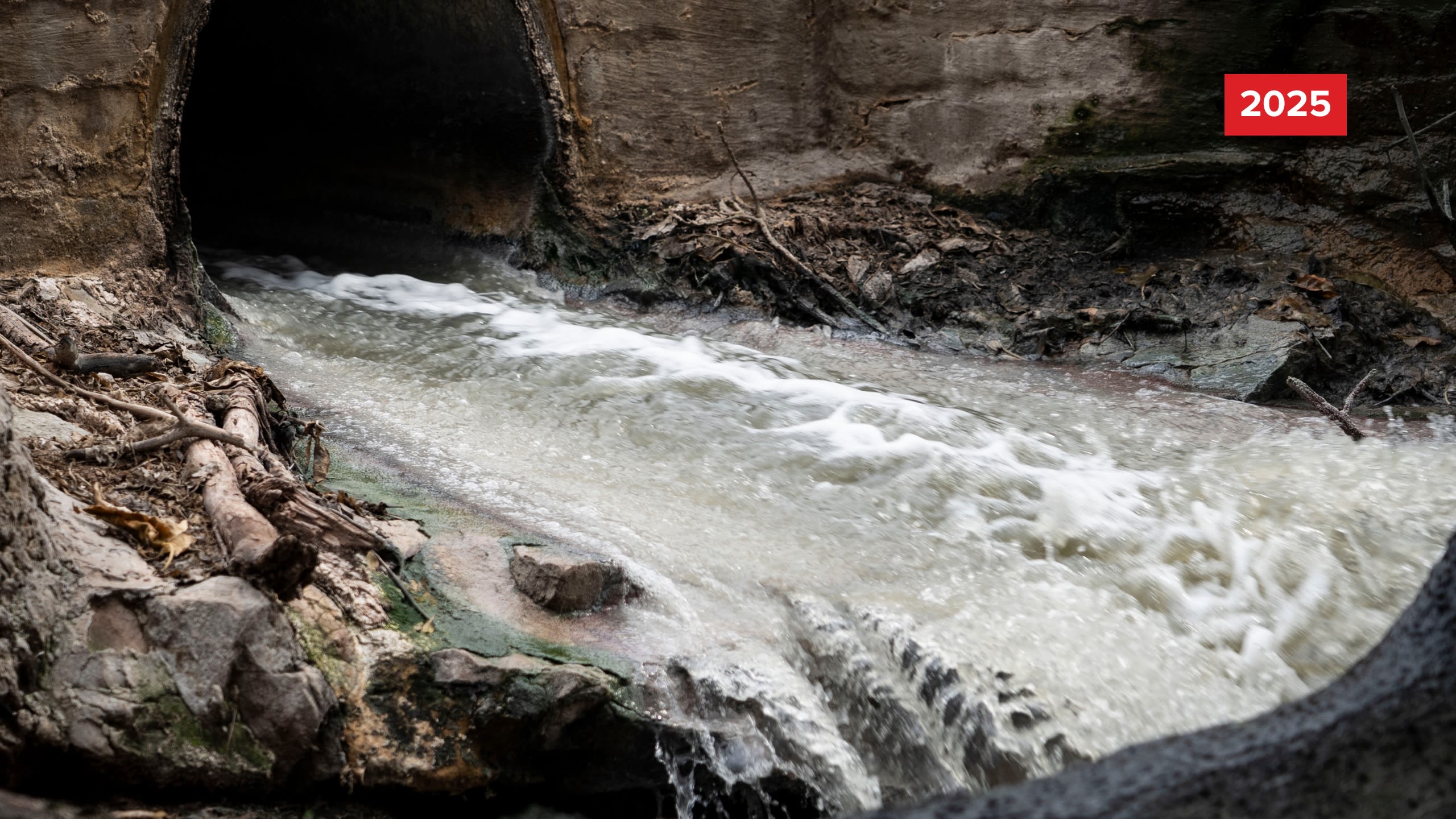
While the municipality readily admits the water does not yet meet the plant's licence requirements and natural environmental standards, the bottom of the river is now visible through the water.
"The plant will fully meet its water licence standard by June next year, when we are done with all the repairs."
Philani Ndlovu, Mogale City's water and sanitation manager
Once the plant achieves a clean bill of health, Ndlovu said the municipality will embark on a project to rehabilitate the river streams.
Already there are promising signs.
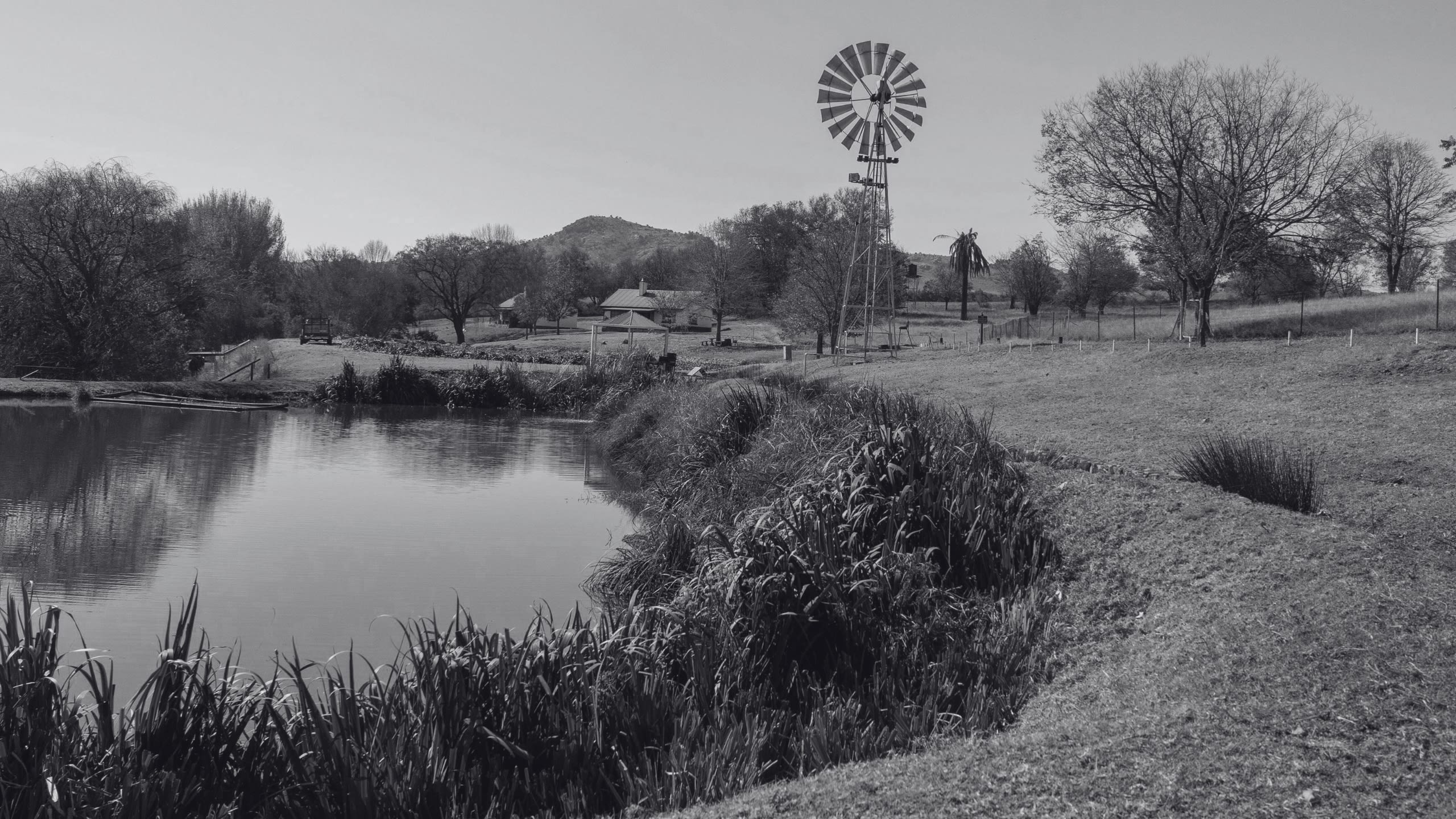
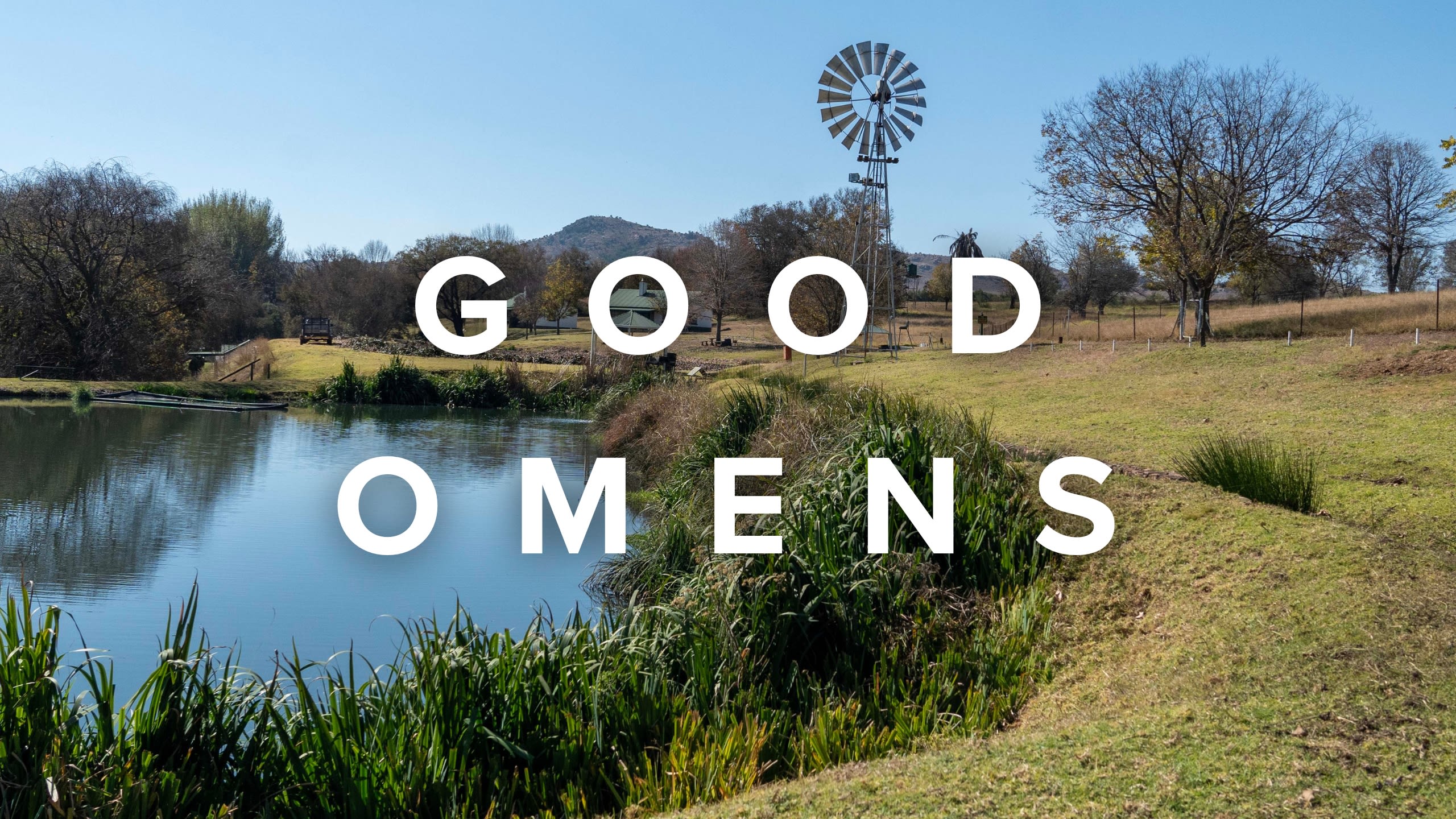
At the Brookwood Trout Farm, gone is the stench that confronted us during our last visit late in November last year. That was at the height of the sewage pollution crisis, when dead fish floated in the black, oily sewage-infested dams.
Brookwood relies on the Blougatspruit for fresh water for its trout farming business, built over 28 years.

The water coursing through the river goes on to meet the Bloubankspruit, down through the Sterkfontein Caves at the Cradle of Humankind, a UNESCO World Heritage Site, through game, livestock and irrigation farms along the Crocodile River before getting into the Hartebeespoort Dam about 30km away.
The river also runs through the ecologically sensitive Blougat Nature Reserve.
The storied valley is home to tourism-focused businesses such as the Nirox Sculpture Park, Cradle Valley Guest Farm, Cradle Farms and Manor House, as well as Nedbank's Olwazini Training Centre.
They all had to endure the thick stench emanating from the black, polluted water coursing through the valley. More than 100 jobs were lost as a result.
Sikonathi Mantshantsha/News24
Sikonathi Mantshantsha/News24
When the News24 team arrived at Brookwood late in May about three families with young children were fishing in two of the four dams while another couple relaxed under the trees by the river.
A few minutes later smoke starts billowing from a braai stand under the trees next to the river. Lunch.
Happy days are returning to Brookwood. Slowly.
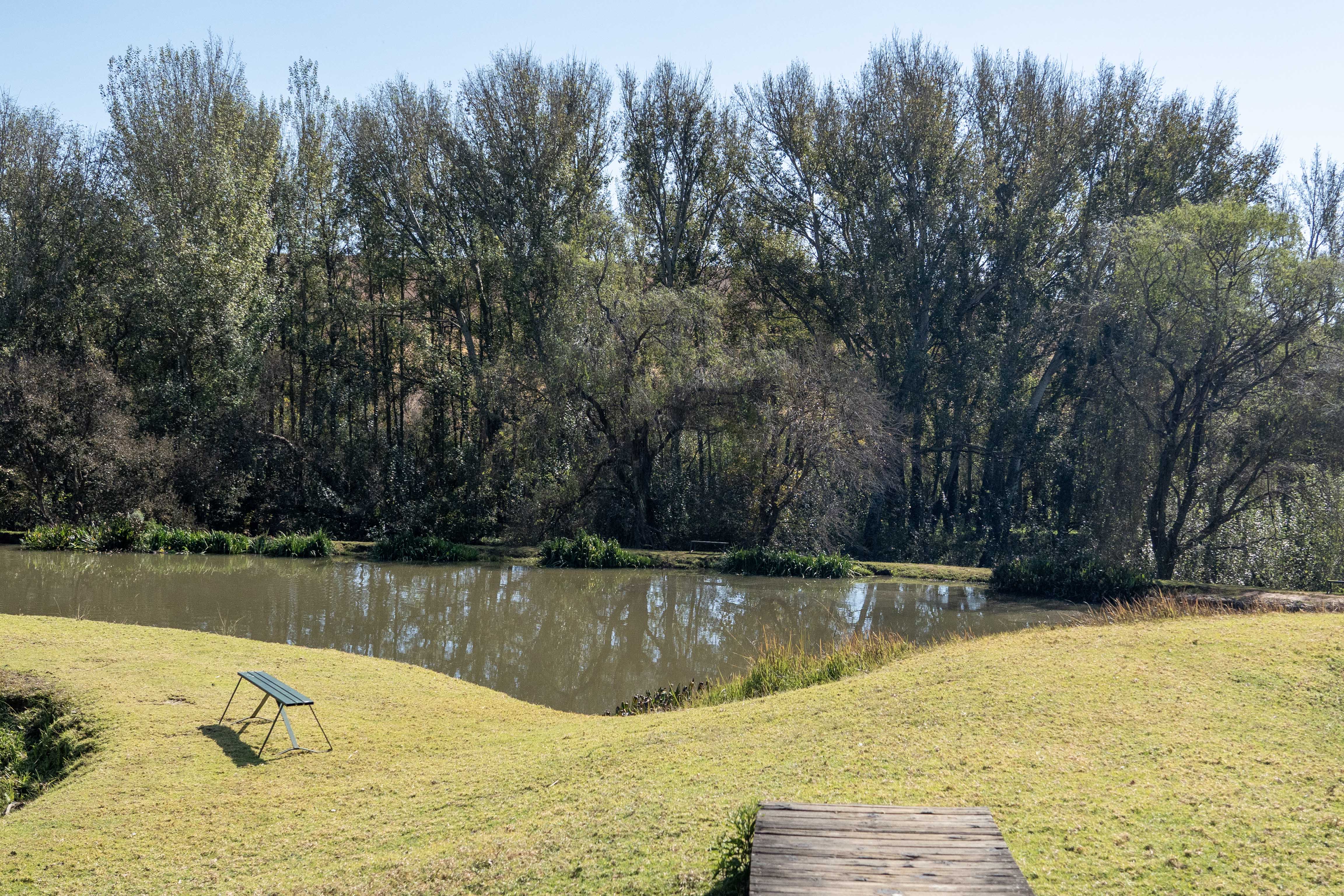
"Last weekend (in May) we received 40 guests," said Catherine Bobby Bain, a pensioner who founded the farm with her husband in 1995. She now runs it with her two sons.
"That at least pays the employees."
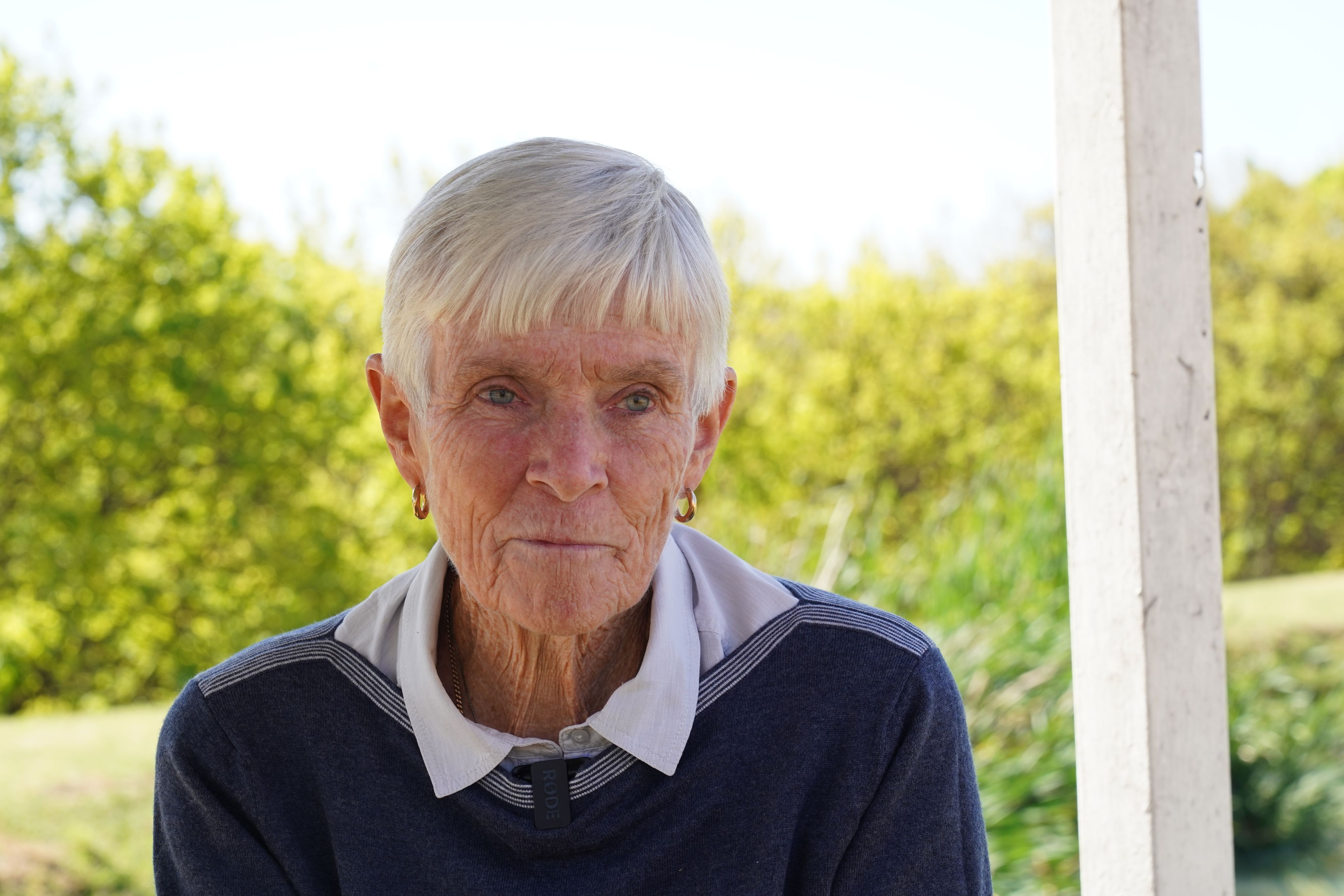
Catherine Bobby Bain
The farm now employs three people, down from the 17 before they started noticing the poisoned water coming into the dams in 2023. The employees were laid off when the guests stopped visiting and revenue dried up.
The number of guests had dropped to seven at the last weekend of November 2024.
The Bains used the largest portion of the savings and Bobby's pension to pay the salaries of employees before eventually letting them go.
They built a water filtration system and dug a borehole for household water and for the livestock of sheep, pigs, ducks and chickens that supplement the family's income.
In better days Brookwood Trout Farm hosted about 300 visitors a week.
High profile guests would also frequent the farm to fish in its tranquil waters.
Cyril Ramaphosa, the current president, would fish there in the early days of the farm until around 2004.
Media24 Archive | M-Net | Pieter Cilliers Productions
Media24 Archive | M-Net | Pieter Cilliers Productions
Staff from some of the major European diplomatic missions in southern Africa, including those from Russia, came to strategise and enjoy quiet weekends within an hour of Johannesburg.
The South African National Defence Force also hosted its Army Fishing Day on the farm until it could fish no longer in the polluted water.
"I do not know if it will ever get back to those good days," said Bain.
The water now appears much cleaner and lighter.
The fishermen catch a few fish, including what appeared to be a 5kg Carp, snapping away photographs before releasing them. The dams are also stocked with Bass and Bream. There is no trout, which requires the cleanest water to survive.
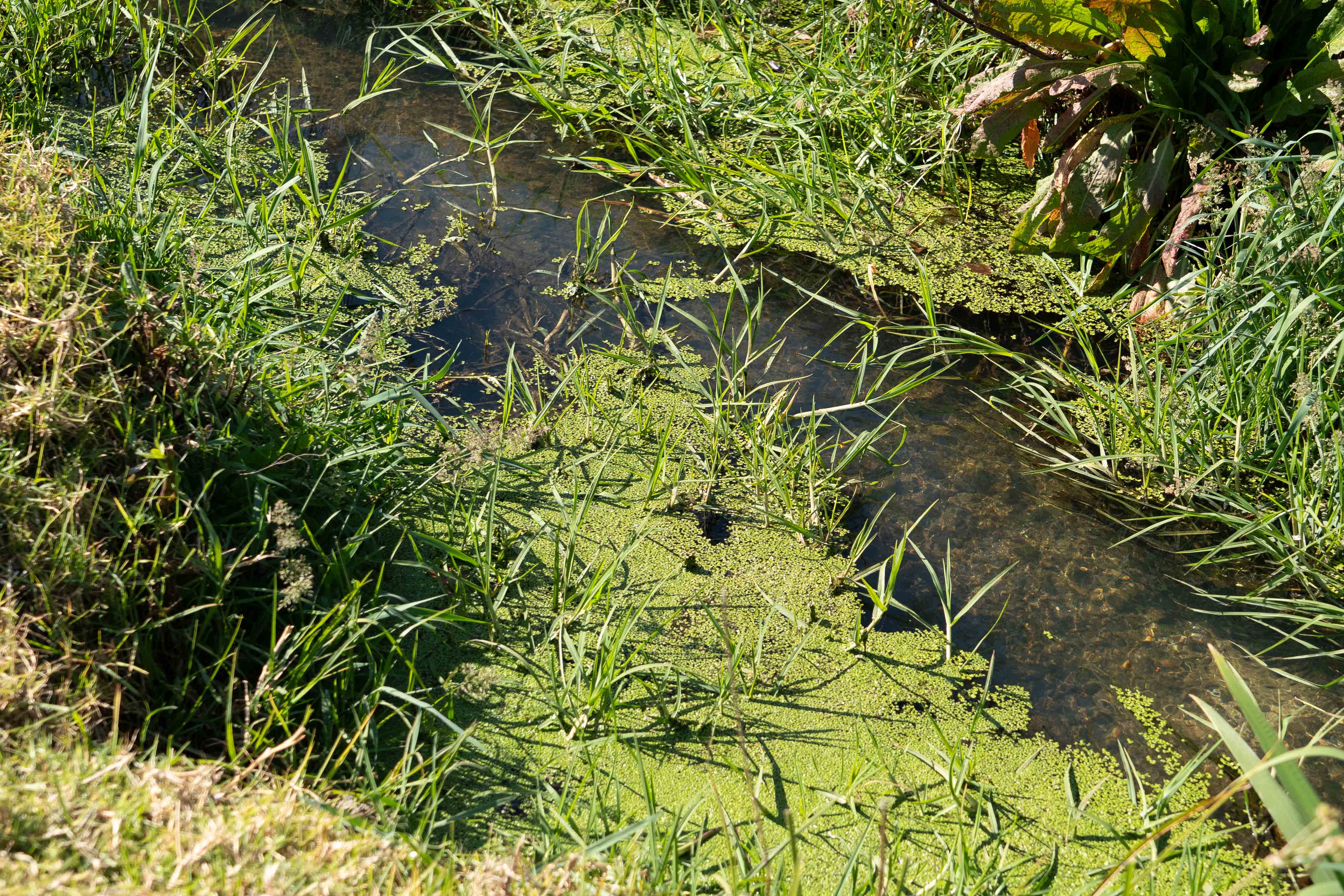
While the cleaner water has allowed some fishing activity to resume in three of the dams, the fourth one is filled with hyacinth.
The water coming out after the hyacinth is much cleaner, but the Bains are now struggling to contain it.
Having already pulled out more than 20 tonnes of the alien plant, the Bains hired an excavator one day early June to speed up the process.
"We were desperate to clean up the water and we got a suggestion to try some hyacinth, which eats the nutrients from the sewage," said Bain.
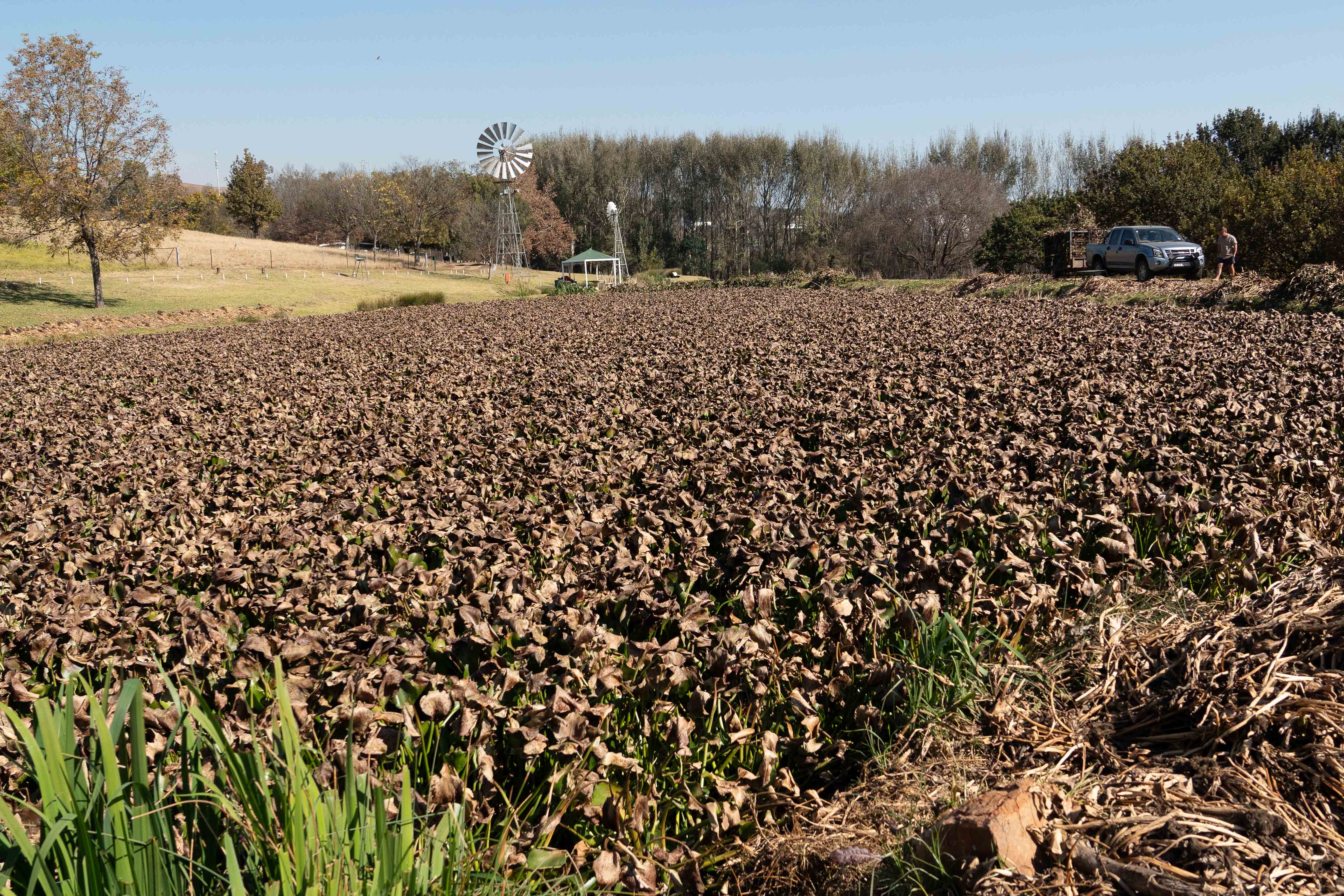
"But the thing has now filled the whole dam in just eight months."
Catherine Bobby Bain
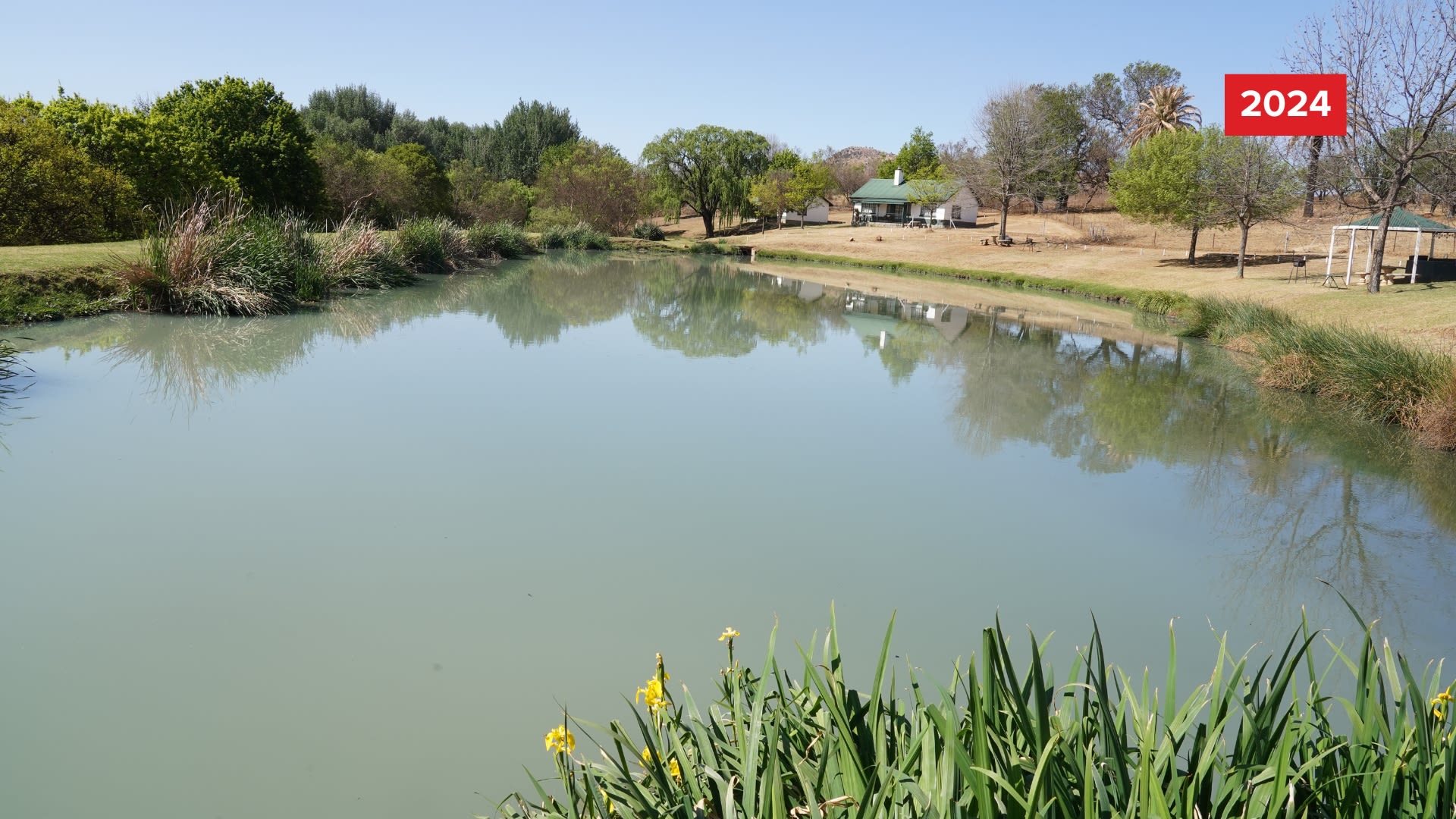
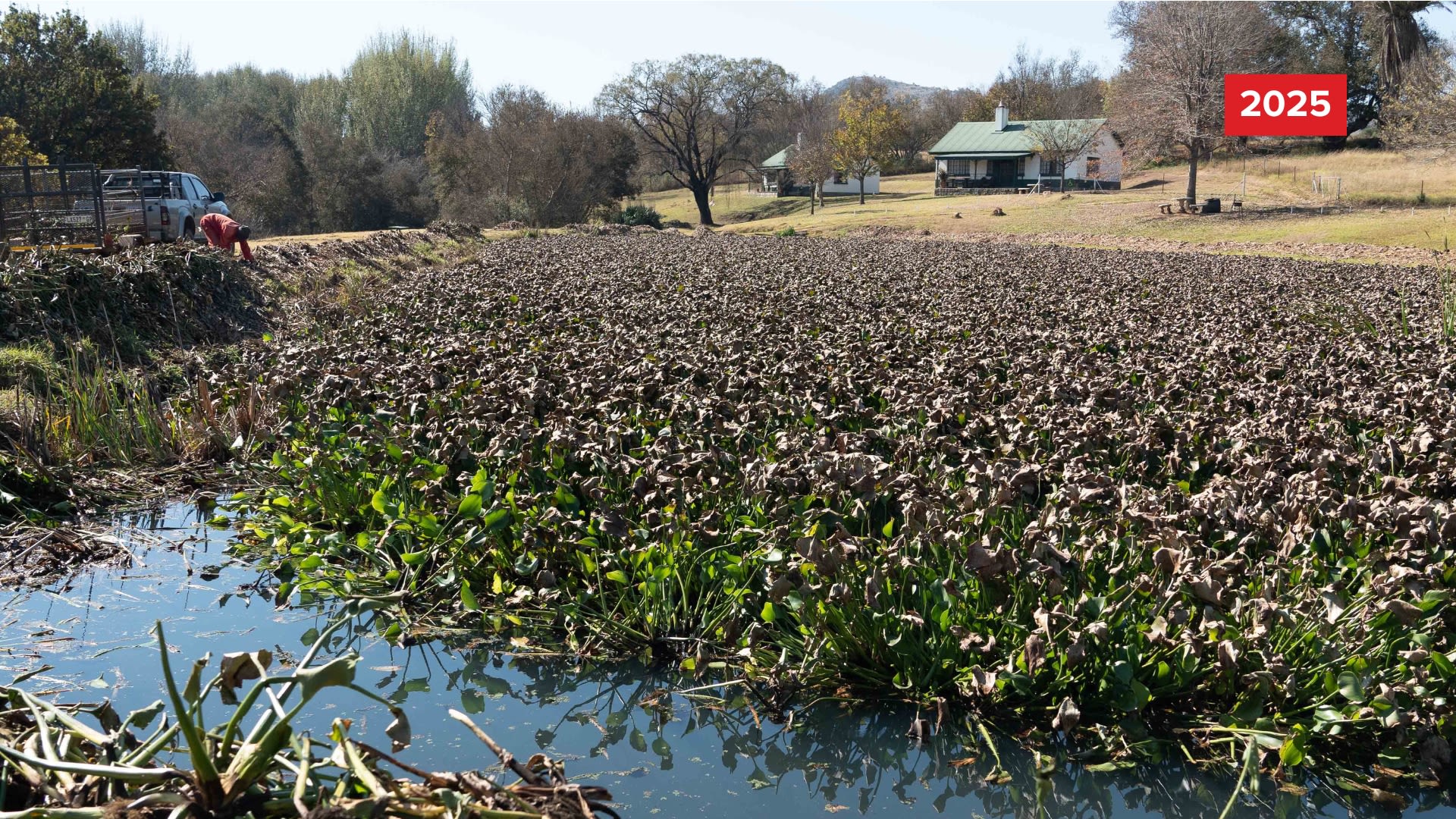
By subscribing to News24, you enable us to pursue stories that can help change the trajectory of our country.
For secure, anonymous communication with News24's investigations team:




















